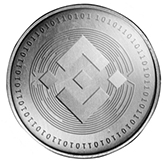BNB is a cryptocurrency (token) that was created by Binance back in 2017. BNB powers the Binance Ecosystem and is the native coin of the Binance Chain and the Binance Smart Chain.
BNB Token Utility
BNB has several use cases:
- Pay for trading fees on the Binance exchange;
- Pay for trading fees on Binance DEX (Decentralized Exchange);
- Pay for transaction fees on the Binance Chain;
- Pay for transaction fees on the Binance Smart Chain;
- Pay for goods and services for both online and in-store purchases (e.g., using Binance Card or Binance Pay);
- Book hotels, flights and more at Travala.com;
- Community utility token on the Binance Smart Chain ecosystem (such as games and DApps);
- Participate in token sales hosted on the Binance Launchpad;
- Donate on Binance Charity;
- Provide liquidity on Binance Liquid Swap.
Token Issuance & Burning
BNB was originally issued as an ERC-20 token, running on the Ethereum network, with a total supply of 200 million coins. 100 million BNBs were offered in the ICO, but the current total supply is lower due to periodic burning events. Their repurchase aim (similar to traditional share buy-backs) is to destroy almost 50% of these issued tokens.
“As a utility token, BNB acts a fuel for the
platforms ecosystem offering many functions and benefits to its holders.
Although initially based on the Ethereum network, the ERC-20 BNB tokens were later swapped with BEP-2 BNB on a 1:1 ratio. The BEP-2 BNB is the native coin of the Binance Chain, and the mainnet launch was announced on April 18th, 2019.
In September 2020, Binance launched the Binance Smart Chain (BSC), a blockchain network that runs in parallel with the Binance Chain. This means that you can now find BNB in three different forms:
- BNB BEP – 2 on the Binance Chain.
- BNB BEP – 20 on the Binance Smart Chain.
- BNB ERC – 20 on the Ethereum network.
What BNB holders can use the token for?
Selected uses cases for the token includes:
- Trading: The BNB coin can be bought, sold or held through trading platforms, depending on the restrictions set by the exchange.
- Transaction Fees on the Binance Exchange: The Binance exchange permits users to pay for the transaction fees in BNB tokens. These discounts act as incentive and means to save on trading/transactional fees.
- Credit card Payment: thought limited use, but the BNB token can be used as a form of payment for Credit card bills on Crypto.com
- Booking Travel Arrangements: On selected sites, the BNB token can be used to book for hotels and flights.
- Investment: Several platforms allow investors to invest in stocks, ETFs and other assets using the Binance Coin.
- Loan and Transfers: The Binance exchange, allow users to borrow other cryptos by keeping BNB as collateral for loans. Like traditional banks, depending on the loan term, the user is obliged to pay interest on the crypto-loan calculated as per LTV i.e. value of the loan to the value of the collateral held.
- Exposure to Crypto Derivatives: The Binance platform permits cryptocurrencies as deposit funds for future contracts allowing transactional fee to be deducted in BNB tokens.
- Charity: The Binance Charity Foundation (BCF) engages in several charity campaigns to help the ‘bottom billions’ through its blockchain-enabled philanthropy. As a medium of donation, it accepts fiat, BNB and other cryptocurrencies for its projects.
Benefit:
As a utility token of Binance, BNB acts a fuel for the platform’s ecosystem. It offers many functions and benefits to its holders. Some of the benefits and specific functions are given below:
BNB Price: The platform is the number one exchange for crypto trading volume and with the consistent ‘Token burning’ exercise, it creates a reduction in coin-supply and with the demand on the rise, the holders of BNB benefit from the price increase.
 Flexible/Locked Savings: By subscribing the token to a flexible or locked plan the owner is able to earn interest on its assets
Flexible/Locked Savings: By subscribing the token to a flexible or locked plan the owner is able to earn interest on its assets
Binance Launchpad: This platform aims to work as ‘Crypto crowdfunding’ facilitating, helping and advising project teams in launching their crypto projects and raise capital. Similar to angle-investors, it gives the BNB holders opportunity to invest early on in potential projects and its subsequent tokens; benefiting both parties by providing exposure, liquidity and returns.
Binance Launchpool: This service was created during the rise of DeFi (decentralized finance) in crypto, where users are allowed to stake their assets to provide funds into a liquidity pool and get rewards in return, known as yield farming.
BNB Vault: As a BNB yield aggregator, BNB Vault will combine Flexible Savings, BNB DeFi Staking, and Launchpool to give you the best APY returns.
ETH 2.0 Staking: Since staked ETH cannot be redeemed until Shard Chains are fully implemented until the completion of Phase 1. Binance tokenizes the staked ETH on its platform to BETH for users on a 1:1 basis. This allows for trading and withdrawal to continue whilst the actual locked asset (ETH) remains staked for the locked duration. The platform will change BETH back to ETH when ETH 2.0 Phase One goes live, returning the owner the amount of ETH equal to the then current BETH holdings.
Conclusion
BNB is part of the Binance exchange and is also used in the Binance Smart Chain. The BNB token serves multiple use cases such as transaction fees, means of payment and more.
Based on and subject to the foregoing information, and for the purposes of this conclusion, nothing has come to our attention that causes us to believe that BNB token is in breach of Sharia* principles and rulings as adopted by the scholars conducting this research.
*Attention is drawn to the term ‘Sharia’ and ‘Sharia compliant’ and its interpretation thereof as expressed in the following link https://shariyah.net/glossary/



